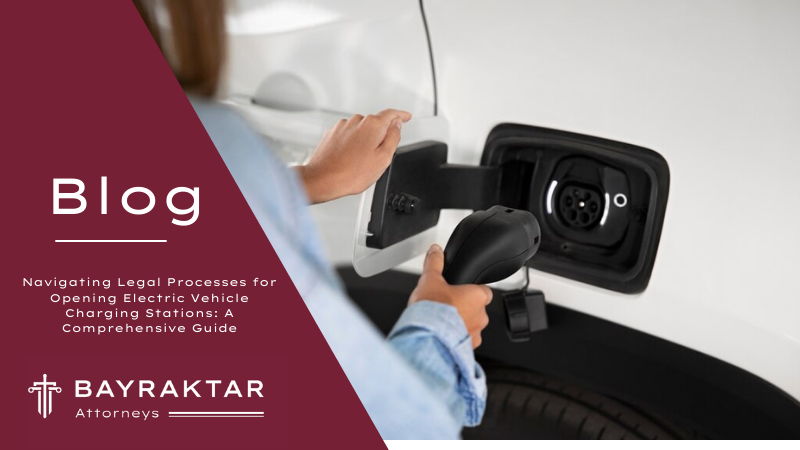
Navigating Legal Processes for Opening Electric Vehicle Charging Stations
The proliferation of electric vehicles (EVs) is reshaping the automotive industry, emphasizing the critical need for robust charging infrastructure.
As entrepreneurs explore the promising prospects in this burgeoning sector, understanding the legal framework governing the establishment of EV charging stations is paramount.
This article serves as a comprehensive guide to navigating the intricate legal processes involved, ensuring compliance, safety, and operational efficiency.
Charging Service Regulation
The foundation of establishing EV charging stations lies within the Charging Service Regulation.
Encompassing the principles and procedures governing the establishment, operation, and provision of charging services, this regulation delineates the framework for charging network operators, charging stations, and users.
It outlines the scope, objectives, and essential provisions crucial for adhering to legal requirements in the EV charging ecosystem.
EPDK: Charging Network Operation License
Central to initiating an EV charging station venture is obtaining a Charging Network Operation License from the Energy Market Regulatory Authority (EPDK). This pivotal license signifies compliance with regulatory standards and operational prerequisites.
However, the process entails meticulous attention to detail, including online application submission, adherence to fluctuating license fees, and fulfillment of company capital requirements.
Obtaining the latest information from official EPDK sources is imperative to navigate evolving regulatory landscapes effectively.
Capital and Business Premises Opening and Operation Permit
Securing a charging station operation license is just the beginning. Applicants must also satisfy the stringent criteria outlined in the Regulation on Capital and Business Premises Opening and Operation Permits.
This entails demonstrating financial solvency and ensuring business premises compliance with security, accessibility, and environmental standards. Adhering to these regulations forms the cornerstone of establishing and maintaining operational integrity.
Also Read; How foreigners trade stock exchange and open bank account in TUrkey
Data Transmission to EPDK and Charging Station Installation
Ensuring seamless data transmission to EPDK and installing charging infrastructure are pivotal milestones in the operationalization process.
The system must align with EPDK’s Charging Service Regulation, providing uninterrupted digital infrastructure for efficient service provision.
Following license acquisition, installation of a minimum number of charging units within designated districts is mandatory. Compliance with operational guidelines and successful station checks precedes the commencement of operations.
Points to Consider
Embarking on the venture of opening an EV charging station entails navigating multifaceted considerations, ranging from legal compliance to technical specifications and sustainability imperatives.
Adherence to EPDK regulations, acquisition of necessary permits, and investment in robust infrastructure are prerequisites for success.
Moreover, integrating sustainable practices, such as utilizing renewable energy sources, underscores a commitment to environmental stewardship, resonating with conscientious consumers.
In conclusion, establishing an EV charging station demands meticulous planning, regulatory adherence, and a dedication to sustainability.
By leveraging legal expertise and adhering to regulatory frameworks, entrepreneurs can navigate the complexities of EV charging station establishment effectively.
Take the first step towards realizing your EV charging station venture today. Contact Bayraktar Attorneys for tailored legal guidance and support to embark on this transformative journey.







